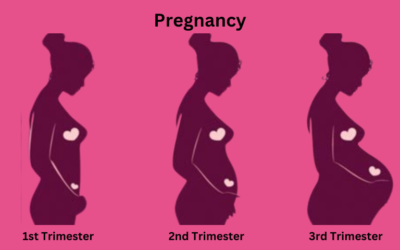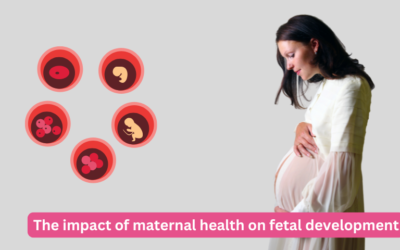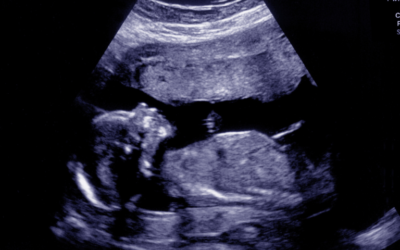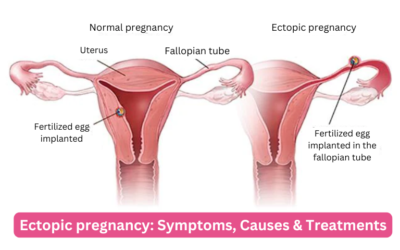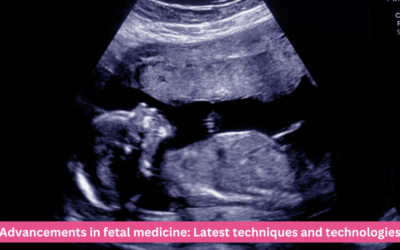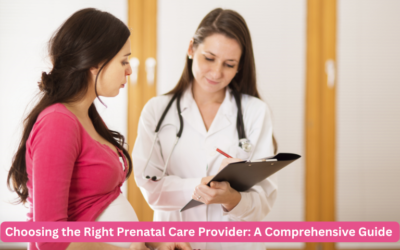What is Gestational Diabetes?
Gestational diabetes is a type of diabetes that occurs only during pregnancy. It is different from type 1 and type 2 diabetes, as it specifically arises due to hormonal changes and the body’s increased demand for insulin. Early detection and management are vital to prevent complications.

Symptoms of Gestational Diabetes
While gestational diabetes may not cause noticeable symptoms, some women may experience:
- Increased thirst
- Frequent urination
- Fatigue
- Blurred vision Diagnosis typically involves screening tests such as the glucose tolerance test (GTT) during the second trimester of pregnancy.
Causes of Gestational Diabetes
Gestational diabetes can be caused by the body’s inability to produce enough insulin to cope with the increased needs during pregnancy. Causes include:
- Family history of diabetes
- Being overweight or obese
- Age over 25
- Previous history of gestational diabetes
- Polycystic ovary syndrome (PCOS)
Impact on Pregnancy
Gestational diabetes can impact pregnancy and childbirth in several ways:
- Higher risk of preeclampsia
- Increased likelihood of needing a C-section
- Potential for larger birth weight of the baby, leading to delivery complications
- Risk of premature birth, “Effective management can mitigate these risks and promote a healthy pregnancy”.
- Higher Risk of Infection like UTI,Wound Infection.
- Chances of diabetes recurrence in future pregnancy.
- Increase chances of hypoglycemia in newborn babies.
Diagnosis of Gestational Diabetes
Diagnosing gestational diabetes involves screening tests and risk assessments, usually conducted between the 24th and 28th weeks of pregnancy.
Screening Tests
- Glucose Challenge Test (GCT):
- This initial test involves drinking a glucose solution and measuring blood sugar levels after one hour. High results may require further testing.
- This initial test involves drinking a glucose solution and measuring blood sugar levels after one hour. High results may require further testing.
- Oral Glucose Tolerance Test (OGTT):
- This follow-up test requires fasting before drinking a glucose solution, with blood sugar levels checked at multiple intervals. Gestational diabetes is diagnosed if two or more readings exceed normal levels.
Monitoring
If diagnosed, regular blood sugar monitoring and consultations with healthcare providers are crucial for managing the condition and ensuring a healthy pregnancy.
Treatment of Gestational Diabetes
Treating gestational diabetes involves a combination of lifestyle changes and, in some cases, medication to manage blood sugar levels.
1. Dietary Modifications
- Balanced Diet: Focus on a well-balanced diet rich in fruits, vegetables, whole grains, and lean proteins. Limit intake of sugars and refined carbohydrates.
- Meal Planning: Smaller, frequent meals help maintain stable blood sugar levels. Include a mix of nutrients in each meal and snack.
- Monitoring Carbohydrate Intake: Pay attention to the type and amount of carbohydrates consumed, as they directly affect blood sugar levels.
2. Physical Activity
- Regular Exercise: Moderate physical activity, such as walking, swimming, or prenatal yoga, can help improve insulin sensitivity and lower blood sugar levels. Aim for at least 30 minutes most days of the week.
3. Medication
- Insulin Therapy: If diet and exercise alone do not control blood sugar levels, insulin injections may be necessary. This is safe for both mother and baby and is commonly used when blood sugar levels are significantly elevated.
- Oral Medications: In some cases, oral medications like metformin may be prescribed to help manage blood sugar levels.
4. Monitoring and Follow-Up
- Blood Sugar Monitoring: Regularly checking blood sugar levels is essential to ensure they remain within the target range. This helps in adjusting diet, activity levels, and medication as needed.
- Regular Check-ups: Frequent visits to the healthcare provider allow for monitoring the baby’s growth and development and making any necessary adjustments to the treatment plan.
5. Postpartum Care
- Postpartum Monitoring: Gestational diabetes usually resolves after childbirth, but it increases the risk of developing type 2 diabetes later. Regular screening postpartum and adopting a healthy lifestyle are crucial for long-term health.
Why Choose Shukan Hospital & IVF Centre in Ahmedabad for Gestational Diabetes Treatment?
Shukan Hospital & IVF Centre is renowned for its specialized care and personalized treatment plans for gestational diabetes. Our experienced team of obstetricians, dietitians, and diabetes specialists work collaboratively to ensure the best outcomes for both mother and baby. We offer:
- From diagnosis to delivery, we provide holistic care tailored to individual needs.
- State-of-the-art equipment and facilities for accurate diagnosis and effective management.
- Compassionate care that prioritizes the health and well-being of our patients.
- Nutritional counseling, support groups, and continuous monitoring to help manage gestational diabetes effectively.
- High success rates and numerous positive testimonials from satisfied patients.
How to Prevent Gestational Diabetes?
While not all cases of gestational diabetes can be prevented, these tips can help reduce the risk:
- Maintain a healthy weight before and during pregnancy
- Follow a balanced diet
- Stay physically active
- Attend regular prenatal check-ups
FAqs
What is the normal range for gestational diabetes?
A blood sugar level of 190 milligrams per deciliter (mg/dL), or 10.6 millimoles per liter (mmol/L), indicates gestational diabetes. A blood sugar level below 140 mg/dL (7.8 mmol/L) is usually considered within the standard range on a glucose challenge test, although this may vary by clinic or lab.
Is gestational diabetes permanent?
No, it usually resolves after childbirth, but it increases the risk of developing type 2 diabetes later in life.
Can gestational diabetes occur in a woman who is not overweight or obese?
Yes, gestational diabetes can occur in women who are not overweight or obese. While being overweight is a risk factor, hormonal changes during pregnancy can lead to gestational diabetes in women of any body type.
Can I have a normal delivery if I have gestational diabetes?
Many women with gestational diabetes have normal deliveries. However, the decision between vaginal birth and C-section depends on various factors, including the baby’s size, the mother’s health, and the control of blood sugar levels.
Is gestational diabetes hereditary?
A family history of diabetes can increase the risk of developing gestational diabetes, indicating a possible genetic component. However, lifestyle factors also play a significant role.
Does gestational diabetes affect breastfeeding?
Gestational diabetes generally does not interfere with breastfeeding. In fact, breastfeeding can help reduce the baby’s risk of developing obesity and diabetes later in life and may help the mother manage her postpartum blood sugar levels.
Can gestational diabetes recur in future pregnancies?
Yes, women who have had gestational diabetes in a previous pregnancy are at higher risk of developing it again in subsequent pregnancies. It’s important to monitor blood sugar levels early in future pregnancies.
What are the potential long-term health effects for mothers who had gestational diabetes?
Women who have gestational diabetes are at increased risk of developing type 2 diabetes later in life. Regular check-ups and maintaining a healthy lifestyle are important for long-term health.
How does gestational diabetes affect the baby's health after birth?
Babies born to mothers with gestational diabetes may have higher birth weights and are at risk of developing low blood sugar levels shortly after birth. Long-term risks include an increased likelihood of obesity and type 2 diabetes.
Meet Our Specialists

Dr. Ajay Prajapati
MBBS (Bachelor of Medicine, Bachelor of Surgery), MS (Master of Surgery)
Specialities: IVF, Infertility, Fetal medicine
Experience: 10+ years
Language: English, Hindi, Gujarati
- Over a decade of hands-on experience in fertility and pregnancy challenges.
- Expert in advanced laparoscopy for minimally invasive surgeries.
- FOGSI-certified sonologist, ensuring accurate pregnancy assessments.
- Known for successful outcomes and trusted care in high-risk cases.
- Earned patient trust across Gujarat and beyond

Dr. Hardik Savaliya
MBB, DGO
Specialities: IVF, Male Infertility, Female Infertility
Experience: 5+ years
Language: English, Hindi, Gujarati
- Holistic approach to patient care, providing both medical treatment and emotional support.
- Focuses on empowering women with knowledge about their health.
- Expertise in infertility treatments like IVF, IUI, and other assisted reproductive technologies.
- Successfully treats couples with infertility issues.
- Competent in managing high-risk pregnancies, ensuring safety for mother and baby.
- Skilled in minimally invasive surgeries, offering effective solutions with quicker recovery times.
- Holds MBBS and DGO degrees, with in-depth knowledge in gynecology and obstetrics.

Dr. Payal Patel
MBBS, MD (Obstetrics & Gynecology), Fellowship in Advanced Ultrasonography course, Fellowship in Infertility, Endoscopy & Ultrasonography
Specialities: Obstetrician, Gynecologist and Infertility Specialist
Experience: 6+ years
Language: English, Hindi, Gujarati
- Expert in managing complex gynecological issues.
- Provides comprehensive infertility treatments.
- Known for a patient-centered approach with personalized care.
- Compassionate and dedicated to her patients’ well-being.
- Stays updated with the latest advancements in her field.
Testimonials
Blogs related to Obstetrics
Fetal Growth Monitoring: Why it’s crucial during pregnancy?
Pregnancy is a journey of immense joy and responsibility, where the health and growth of your unborn baby become a top priority. Among the many...
Understanding HCG levels in pregnancy
Human Chorionic Gonadotropin (HCG) is a key hormone that plays a vital role in early pregnancy. Often called the "pregnancy hormone," HCG is...
Anemia and Pregnancy – What every woman should know?
Pregnancy is a life-altering experience, full of joy and excitement, but also filled with challenges and adjustments. Among the various health...
How does your body change during pregnancy?
Pregnancy is one of the most profound experiences a woman can go through, both physically and emotionally. As your body prepares to bring a new life...
How to deal with white discharge during pregnancy?
During pregnancy, the body undergoes many changes, some of which can be surprising or even concerning if you're not familiar with them. One common...
Tests during pregnancy: What are the routine prenatal tests?
Pregnancy is an exciting journey, but it can also bring a lot of questions and concerns for expecting parents. One important aspect of prenatal care...
The impact of maternal health on fetal development
Maternal health plays a crucial role in ensuring a healthy pregnancy and optimal fetal development. From the moment of conception, the health of the...
Understanding the fetal anatomy scan: What to look for?
Pregnancy is an incredible journey filled with milestones that ensure the health and well-being of both the mother and baby. One such important...
Ectopic pregnancy: Symptoms, Causes & Treatments
Ectopic pregnancy is a rare but serious condition in which a fertilized egg implants outside the uterus, most commonly in one of the fallopian...
The ethics of fetal medicine: Navigating complex decisions
Fetal medicine is a rapidly evolving field that combines advancements in technology, medical knowledge, and ethical considerations. As we strive to...
IVF and Multiple pregnancies: Understanding the risks and Benefits
In vitro fertilization (IVF) has brought hope to countless couples seeking to build families. However, one of the more complex aspects of IVF is the...
Fetal medicine and Birth planning: A professional guide to preparing for delivery
Fetal medicine plays a crucial role in modern obstetrics, offering invaluable insights into the health and development of the fetus. It enables...
Fetal surgery: Techniques, Treatments, and Success rates
Fetal surgery is a revolutionary field in medicine that addresses birth defects and other conditions while a baby is still in the womb. With...
Prenatal screening and diagnosis: Key tests and Procedures trimester by trimester
Prenatal screening and diagnostic tests are essential for monitoring the health of both the mother and baby during pregnancy. These tests help...
Advancements in fetal medicine: Latest techniques and technologies
The field of fetal medicine has experienced incredible advancements in recent years, offering pregnant women and their unborn babies more precise...
Difference between 3D and 4D sonography: Which one is right for you?
Sonography has become an integral part of prenatal care, helping expectant parents and doctors monitor the development of the fetus in real time....
15 foods and drinks to eat & avoid during pregnancy
Pregnancy is a special time that calls for extra attention to your diet. What you eat not only affects your health but also the development of your...
Understanding pregnancy trimesters: What to expect in each stage
Pregnancy is a remarkable journey, divided into three trimesters, each bringing its own set of changes, challenges, and milestones. At Shukan...
Preparing for Pregnancy: Essentials steps to take
At Shukan Hospital and IVF Center, we understand that preparing for pregnancy is an exciting and significant journey. Taking the right steps before...
Navigating the First Trimester: What to Expect
The first trimester of pregnancy is an exciting and transformative period, filled with anticipation and many changes. This phase, spanning from...
Managing Pregnancy Discomforts: Tips for Relief
Pregnancy is a beautiful journey that brings immense joy, but it also comes with its share of physical and emotional challenges. At Shukan Hospital...
Creating a Birth Plan: Your Guide to Personalized Care
Creating a birth plan is an empowering step in your pregnancy journey, allowing you to outline your preferences and make informed decisions about...
Common Pregnancy Myths: Debunking Misconceptions
We know that pregnancy is an exciting and emotional journey. With all the advice and stories you hear from friends, family, and even strangers, it...
Choosing the Right Prenatal Care Provider: A Comprehensive Guide
Choosing the right prenatal care provider is a critical decision that significantly impacts your pregnancy journey and the health of both you and...
The Art of Birthing: A Comprehensive Guide to Normal Delivery
Introduction Welcome to Shukan Hospital and IVF Center comprehensive guide to embracing natural childbirth. Welcoming a new life into the world...
Navigating Pregnancy Milestones: A Week-by-Week Guide
Introduction:Embarking on the miraculous journey of pregnancy is a momentous experience, and Shukan Hospital and IVF Centre proudly stands as your...
Unlocking the Power of Maternal Mental Health: A Path to Positive Pregnancy Outcomes
IntroductionMental health during pregnancy is a topic gaining significant attention in recent years. It's not just about the physical aspects of...
The Importance of Early Pregnancy Scans: Ensuring a Healthy Journey
Pregnancy is a uniquely special time, filled with excitement and joy.The wonder of early pregnancy is often accompanied by new feelings, new...
Fertility specialist or Gynecologist? Which is right for you?
When you are trying to conceive, it is understandable to wonder when and which doctor to consult. Patient confusion tends to originate from the fact...




